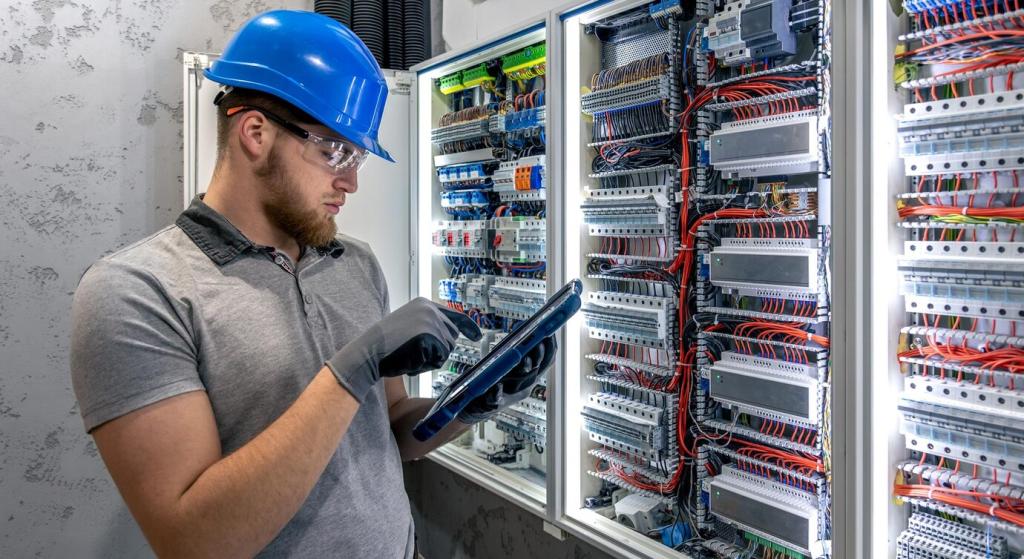
Efficient Vehicle Maintenance with Cutting-Edge Tech
Welcome to the future of vehicle care, where advanced technology redefines the maintenance experience for car owners and fleet managers. Modern innovations are transforming how vehicles are serviced, creating unprecedented levels of efficiency, accuracy, and convenience. This page explores the revolutionary impact of technology on vehicle maintenance, presenting how digital solutions, smart diagnostics, data analytics, and automation are streamlining every aspect of the process. Whether you are passionate about personal car care or oversee an extensive fleet, discover how next-generation technology ensures your vehicles stay safe, reliable, and optimized for performance.

Digital Diagnostics: Precision and Speed
On-Board Diagnostics II (OBD-II) scanning systems have become standard in modern vehicles, offering technicians a window into a car’s performance and potential issues. Rather than relying on vague symptoms, OBD-II scanners read precise fault codes, often before the driver notices any difference in functionality. Such instant analysis allows for early intervention, minimizing further damage and long-term repair costs. Additionally, many diagnostic platforms now connect wirelessly with mobile devices, making car health data readily accessible and promoting proactive maintenance routines.
Smart Scheduling and Automated Reminders
Personalized Maintenance Schedules
Modern software solutions create maintenance plans tailored to each vehicle’s unique driving patterns, environmental conditions, and age. Rather than generic service intervals, these systems adjust recommendations in real time to match actual use, detecting factors such as frequent short trips, harsh climates, or prolonged stationary periods. This personalization minimizes unnecessary service visits while ensuring essential work is never delayed, optimizing both performance and cost-efficiency for every car or truck.
Automated Service Reminders
Automated reminders are seamlessly integrated into driver experiences, arriving via push notifications, texts, or emails as key maintenance dates approach. Synced to real-time mileage and system health data, these reminders eliminate the risk of missed appointments, reduce administrative burdens for busy individuals, and provide peace of mind. Service centers also benefit, as reminders improve customer retention and help balance shop workloads more predictably throughout the year.
Workshop Integration for Seamless Booking
Innovative platforms now connect directly with workshops, allowing users to book appointments instantly as soon as a maintenance need arises. The whole process is streamlined, from identifying the required service to securing a convenient time slot with a trusted provider. Transparent pricing and digital communication channels further enhance the booking experience, ensuring drivers receive timely and quality support without unnecessary delays or uncertainty.
Data-Driven Maintenance for Fleets
Centralized Vehicle Monitoring
A central dashboard collects and displays real-time data from every vehicle in the fleet, tracking status, health, and ongoing maintenance needs. This unified view enables fleet managers to oversee operations remotely, diagnose issues proactively, and allocate resources efficiently. Such centralization minimizes vehicle downtime, curtails unplanned repairs, and maximizes vehicle utilization across all assets, enhancing the bottom line for logistics and service-driven businesses.
Maintenance Cost Analytics
Data analytics platforms compile historical and real-time maintenance records, giving fleet operators clear insights into spending patterns and recurring issues. This transparency uncovers savings opportunities, like switching to different parts suppliers or rethinking service intervals for specific vehicle models. Over time, data-driven strategies can significantly reduce total maintenance costs, increase predictability in budgeting, and support smarter purchasing decisions when upgrading or expanding the fleet.
Regulatory Compliance Management
Cutting-edge fleet software automates regulatory checks and reporting, ensuring every vehicle meets safety and emissions standards. Automated logging of inspections, repairs, and compliance documents eliminates paperwork and reduces the risk of errors or legal penalties. With technology handling these complex administrative tasks, fleets can confidently meet all local, national, and international regulations while focusing resources on core operations.
Previous slide
Next slide
Mobile Apps and User Empowerment
Apps allow users to store detailed service histories, invoices, and reminders in a centralized digital vault. From oil changes to major repairs, every record is accessible at a glance, supporting warranty claims, resale negotiations, and strategic planning for upcoming maintenance. This comprehensive approach not only declutters paperwork but also protects the vehicle’s value by ensuring nothing falls through the cracks.
With just a few taps, drivers can request roadside assistance, schedule maintenance, or contact a mechanic for virtual consultations. These features make it easier than ever to resolve issues quickly, wherever the driver might be. By streamlining communication and offering instant access to help, these digital tools reduce stress during breakdowns and foster a sense of confidence in vehicle care management.
Apps now analyze driving habits, fuel consumption, and system alerts to provide actionable feedback tailored to each user. Helpful tips on energy efficiency, tire maintenance, or optimal service intervals encourage better driving behavior and more thoughtful ownership. By guiding users toward smarter habits, these apps contribute directly to longer-lasting vehicles and reduced running costs.
Automated Inspection Systems
Robotic platforms equipped with cameras and sensors perform comprehensive vehicle scans in mere minutes. These systems detect everything from worn brake pads to misaligned wheels, generating detailed reports for technicians and customers. Such thoroughness eliminates oversight and standardizes the inspection process, ensuring every car receives a consistent, high-quality evaluation regardless of operator experience or workload.
Robotic Repairs
From tire changes to part installations, robotic arms and automated tools execute physical tasks with unmatched speed and care. By taking over repetitive or physically demanding jobs, these machines free up human technicians for complex diagnostics and customer interaction. Workshops benefit not only from reduced labor costs but also from expanded throughput and happier, better-served clients.
Sustainable Practices with Green Tech
Eco-Friendly Fluids and Materials
Workshops and manufacturers are adopting biodegradable oils, recycled plastics, and sustainable materials to minimize environmental impact. These green alternatives meet or exceed performance standards while reducing pollution, waste, and carbon footprint. Sophisticated sensors and inventory systems track material usage, promoting further eco-optimization in every maintenance task.
Smart Energy Management in Workshops
Modern service centers integrate smart energy systems—such as solar power, LED lighting, and automated climate controls—to reduce their consumption and operational emissions. Technology monitors energy usage in real time, identifying opportunities to conserve electricity and optimize heating or cooling based on workshop activity. This not only lowers costs but also demonstrates a strong commitment to environmental stewardship for environmentally conscious customers.
Recycling and Waste Reduction Automation
Robotic systems sort and process used parts, fluids, and other waste, ensuring that recyclables are diverted from landfills. Advanced analytic tools monitor every stage of the waste cycle, identifying further opportunities for reduction and re-use. By closing the loop on resource management, technology-driven workshops lead the industry toward a more circular and responsible approach to vehicle maintenance.
